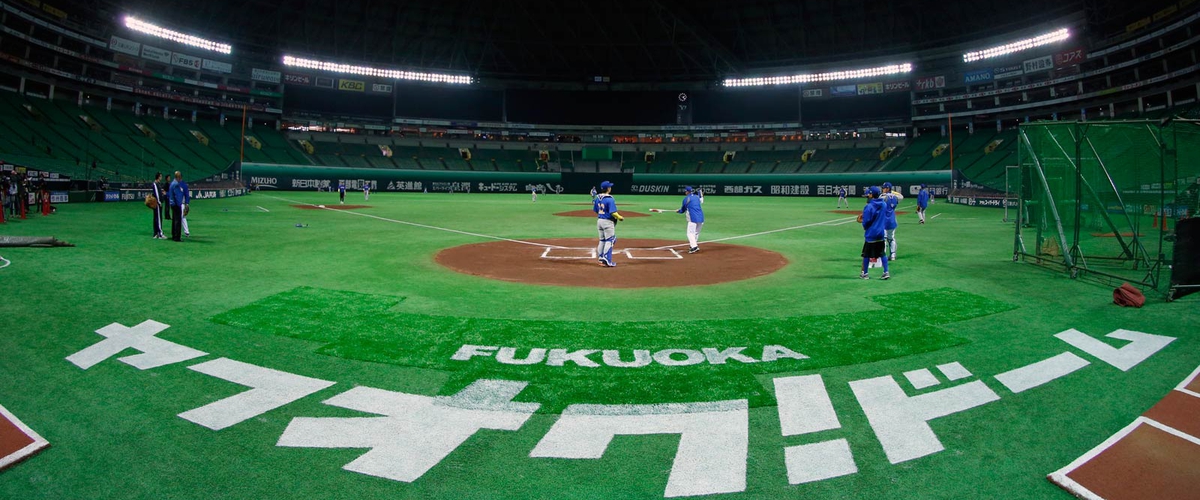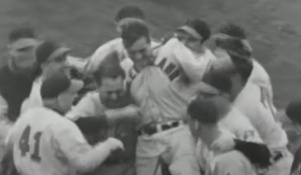The African American Baseball in Japan

This article was created with writing help from my friend and blogger Freddy Johnson.
The issue of a minority groups in Japan, just like in any other country, was quite critical. People tended to react differently towards certain aspects in their lives. Some tended to embrace the object or subject of controversy while others disdained the same issue, hence the saying, “one man’s meat is another’s poison”. Just like the way some Asian and African countries either collaborated or resisted European invasion towards the end of the nineteenth century, some Japanese welcomed the minority groups and accepted them wholeheartedly, while others did not want anything to do with them. There were many different minority groups in Japan. Some were indigenous while others came from other countries. The foreigners included people from various countries such as Russia, America, England, among other European countries. These people came to Japan for various reasons such as trade, war, tourism and even to participate in games. This formed the basis for the introduction of some of the most popular games in Japan such as football and baseball. The latter game made up the spine of the topic of discussion for this paper and especially in reference to African American players. Whether they came as members of various American teams to tour and play against several Japanese teams or came as players for the Japanese’s teams, they received mixed reactions. This statement formed the basis for this research and to extension this report. The manner in which the Japanese received them varied to a great extent. While some offered them a warm embrace, others turned to them a cold shoulder. This paper looked at the history of various African American baseball players in Japan, all the way from the first to arrive to the more recent players.
African American Baseball Players
One of the most successful African American baseball players to grace the Japanese baseball league, currently known as Nippon Professional Baseball, was George Altman. He previously played in Major League Baseball in America before travelling overseas to Japan. He played for both Hanshin Tigers and Lotte Orions in a period of seven years. This begun in 1968 and ended in 1975. It was unusual in that he found more success as a player in Japan in comparison to his homeland. He credited the success to martial arts. Martial arts was one of the key characteristics of the Japanese lifestyle. When he attributed this to his success as an outfield player, it said a lot about the Japanese culture and its relationship with the minority groups. It clearly highlighted the fact that the Japanese culture was not only useful to the Japanese but also to the minority groups. The willingness of the locals to teach martial arts to a member of a minority group also spoke a lot about the Japanese and their relationship to the minority. They clearly embraced this African American player and treated him as one of their own.
This case was almost similar to another foreign player though not an African American. Victor Starffin, a Russian by nationality, played in the Japanese baseball league from 1935 to 1936. Although his coach blackmailed him to play for the Japanese, he received the full corporation of the Japanese who truly appreciated his gaming skills George Altman received an almost similar treatment in that he received a chance and an equal opportunity as the Japanese to play in the national league He managed two hundred and five home runs in the period he played in Japan compared to one hundred and one he managed while a player in the MLB This was a great indication of the kind of treatment the Japanese offered to members of the minority groups especially those who played in various games. This kind of treatment almost mirrors the kind of treatment African American football players receive in Europe with the likes of Jozy Altidore allowed to play Sunderland in the English Premier League.
Furthermore, the African American baseball players who were members of the University of Michigan team that visited Japan in the previous century received a very warm welcome The Japanese baseball fans lined the streets to receive them upon the arrival of their voyage. It was such a spectacular picture that was so unlike the Americans who paid less respect to the University players. This was a clear indication that the Japanese appreciated players without discrimination based on color or nationality. They liked the game and the prospect of meeting American players was such a welcoming news to them and they could not pass the chance to show their admiration to the players. The idea of the Japanese universities of Meiji, Keio and Waseda was an indication on the kind of respect they gave their American counterparts. On the arrival of the team, they plaid each of the above mentioned teams on separate occasion and varied fields and locations This gave the Japanese fans a rare chance to watch and cheer on the players. During their stay and subsequent games, they received nothing but hospitality and admiration from the locals. This was a true reflection on the Japanese’s appreciation of both the white and African American baseball players. Their joy and excitement did not depend on color but simply on the game the players offered
The African American players performed very well. They not only played for the sake of being players but, also put an extra effort to entertain the enthusiastic fans. The African American players in particular excelled during the tour of the three universities. This was a similar situation to the Philadelphia Royal Giants. This team visited Japan in 1927 as part of Kenichi Zenimura’s grand plan for the Negro league team to tour Japan This team boasted of some of the greatest African American players such as Andy Cooper and Biz Mackey. The tour was such a success that it formed part of the legacy of the player turned manager Kenichi. The players received a warm welcome on their arrival. They then attracted some of the biggest crowds of that time to the games they played. Kenichi, an indigenous Japanese, realized the potential of the Japanese baseball team and sought to organize such trips to expose the Japanese to some of the best baseball players with the least regards to the skin color, religion or nationality.
This proved quite a success for James R. Mackey, popularly known as Biz Mackey. He was such a successful catcher in the Negro Baseball League and this tour was another feather to his golden hat He was the first baseball player in the history of Japanese baseball to hit a home run outside the stadium This was such an epic performance and to imagine that he did in three consecutive games. The fully packed Meiji Shrine Stadium experienced one of the best baseball players in the world perform at his best. Truly, this massive performance drew great inspiration from the over enthusiastic fan base that the team drew from Japan He had one of the best experiences of life in a foreign country. This was a further justification of the kind of success Japan offered African American players. He played so well that the crowd cheered every time he stepped up to bat. He was a member of a minority group, and more so an African American, and yet was treated in a similar manner to a super skilled Japan baseball player. He would later draw on from this inspirational tour to further improve his game back in the Negro league. He later became one of the household names in the league and his tour to Japan played a great deal to this improvement in his game and career as a whole. He was so excited to the kind of treatment he received that he decided to make subsequent visits in 1931 and later in 1934. This was a clear picture to the kind of level he held the Japanese fan base to his game.
Another great African American baseball player who graced the Japanese fan base was Andy Cooper. He was elevated to the prestigious baseball of fame in 2006 but he played in the early twentieth century. He was one of the best pitchers and was popularly known as “Lefty” as he was left handed. His trip to Japan as part of the Philadelphia Royal Giants, preceded his move from Detroit Stars to Kansas Monarchs This was a move that involved his move across the teams with five players moving in the opposite direction in a trade. This clearly underlined the importance of this player. He also received a raucous welcome and massive support from the Japanese fans during his visit. He had a great tour as well playing with the likes of Biz Mackey. The above mentioned events clearly outlined just how significant the tour to Japan was to Cooper. He received success during and after his visit to the Asian Pacific country. This formed part of his great but short life as he died just a few years short of fifty.
African Americans’ Success in Japan
The African American players underwent a lot of problems in order to reach Japan. They used water as their means of transport between the two continents. They did not have a variety of options as compared to the present with an option of either water or air. The sea vessels of the time were also of poor quality. The players tried to play catch while en route to Japan but, with no success. They took quite a number of days to get to Japan. Despite all these problems, they even came back on later occasions. This was a proof of the kind of regard the African America players had for Japan. This showed a unique characteristic of the Japanese in the way that they received the baseball players from America. They more than welcomed the Americans in to their world and culture in spite of the African American players’ tag of foreign minority group. This demonstrated that the Japanese were more than welcoming to any foreigner or group as long as they also had something to offer in return. The kind of treatment to these baseball players from America demonstrated that the Japanese hospitality was not under the influence of race or nationality. They could accommodate any person so long as the others did not interfere with their own lifestyle nor threaten their existence These Japanese were not only good to the African Americans before the disastrous Second World War two but also after. African American players’ home country, America bombed two of Japan’s most populous cities during the war with the use atomic bombs. The bombs resulted in the death of about one and fifty to two hundred and fifty thousand people. Most of the dead were innocent women. Many expected this kind of action to elicit similar or slightly more aggressive reactions from the Japanese. However, they went against the books to welcome other African American players even after the war. Truly, the African American baseball players had a second home. They could count on the Japanese to provide them with the required environment to further their career and a chance to entertain more fans, albeit more enthusiastic compared to their home country counterparts.
In addition to these great African American baseball players who only graced the Japanese baseball as part of tours, there were great players to actually take part in the Japanese league However, all the African American players to participate in the league only did so after the league’s rebranding. They took part in the Nippon Baseball league. One of the first baseball players to achieve this landmark feat was Larry Dobby. He was the third American player to actually manage to play in Japan’s elite league after both Wally Yonamine and Donald Newcombe. Just like the baseball players who initially played in the Negro Baseball League before joining the Major League in America, these players played in America before moving abroad. Most of them, especially the African Americans such as Dobby, went much later in their careers. In fact, Dobby only went on to play in the Japanese league in a comeback from retirement (Moore, 1988) He signed with Chunichi Dragons in 1962. He considered Japan as a less competitive league in comparison to American leagues. He found a chance to further his career without the excessive demand and pressure that came with playing in Japan. Although not a regular as he was in his prime, he received warm welcome from the Japanese, an indication of the love and support that African American players received in Japan. It was clear that the Japanese not only welcomed the African Americans to play in the baseball tour games before heading back home, but also appreciated them as players in their own local baseball league. These African American baseball players did not disappoint as they duly delivered to the expectations of their loyal Japanese fans.
In addition to Dobby, Chunich Dragons also signed Donald Newcombe, popularly known as “Newk” He was one of the most decorated American baseball players in his heydays. The Japanese team made a huge statement of intent in the capture of these two great African American baseball players. Even if they were past they best, they still added glamour and beauty to the Japanese baseball games. They also served to attract many supporters to the stadia who came to watch some of the great names in the game. Don, as he was also known, received a call up to four All Star teams, won the World Series championship in 1955, and received a number of personal awards such as the Most Valuable Player in the National League in 1956 In the same year, he also won the Cy Young award. He was actually the first pitcher to achieve such a feat within the same period. When such a decorated player decided to play for a team in Japan, it really showed the kind of respect he had for Japan. It showed that the African American baseball players not only enjoyed the support from the Japanese baseball lovers but also appreciated the support.
The decision by these two great players to play in the Japanese league formed a great part of the African American players. It opened the path for more African American players to move abroad This was a kind of a revolution in the games. In a similar manner to the world’s most popular game, soccer, where players normally moved to Europe in their prime to play for some of the world’s elite clubs, others moved to America especially towards the end of their career. This opened the channel for those players who could make the cut to European clubs to seek clubs in American MLS as well. It served to quell any lingering fears of discrimination and bad attitude towards any paid African American baseball players in the country. It showed that the Japanese were open and were willing to accommodate foreign players not only in the pitch but in their country as well. The Americans had found an avenue to outsource their great baseball talent. This was especially important to players on the verge of the end of their careers and the younger colleagues who could not make the cut to the American elite leagues. The older found an avenue to further prolong their playing careers albeit for a little longer and entertain a different set of supporters with a completely different culture and customs.
Hankyu Braves, one of the Japanese strongest baseball team playing in the Pacific league, found some great success in the middle of the previous century when they signed three African American players. These players included Larry Rains, John Britton and Jonas Gaines. These players propelled the Japanese outfit to a level of success it had not experienced before. The team succeeded to previously unimaginable heights especially as a result of the efforts by these African American recruits. Larry and his colleagues received a salary of only two and seventy US dollars a month but, they could comfortably survive on the money in Japan. Had they lived in America, they would need about twice the same amount to live comfortably. This was a new crop of players unlike the previous generation. While the other players came to Japan either as part of a tour or as players in their later stages of their careers, these players played in Japan in their peak. They came to Japan primarily to play baseball for a living. This was quite impressive in that they proved that even the younger and inexperienced African American baseball players could make it in Japan. There were calls for more young African American players to travel oversees to Japan to try their luck somewhere else especially if they could not break into the American more competitive teams.
The trio not only integrated into the Japanese baseball games but in the Japanese culture as well. They often confer to the Japanese rituals such as the sprinkling of salt and water on the body before matches to ward off any lingering evil spirits and also to ensure they attain the required victory. The players also got used to the Japanese food such as the fish and the rice. This showed just the kind of transformation of the African American players. In addition to the rituals and food, they also learned the Japanese language. These formed part of the complete transformation of these players as they fully conformed to the Japanese customs and practices. They not only grew as players but, also in culture and socially. The Japanese demonstrated their humanitarian side as they allowed these African Americans to grow into their culture as they pursued their careers. They did not have problems with the Americans infiltrating their culture. To the contrary, they were enthusiastic about judging from their support of the players especially Britton. They often sought autographs from these players whenever they met them. They treated these players just like their own and encouraged them to continue doing well in their career.
In terms of financial success, these players were also well secured (Mayeda, 1999) They could live more comfortably on relatively less and save more money in comparison to playing and living in their home country, America. This led to suggestions by various concerned personnel in the field of baseball that more and more African American young baseball players try the Orient as there was money in Japan. The players just had to go to the country and get the money. This was further proof of the complete life the African Americans lived as baseball players in Japan. Not only were they socially secure but also financially well off in comparison to their counterparts in the Negro leagues or the lower national leagues in America (Kelly, 1998) Many people, especially players, often travelled abroad in search of greener pastures. This was the same for the baseball players. It would not be beneficial for the player to move to a different country with a completely different culture only to suffer financially. The players would only be attracted to the other country only if they had a guarantee of a financial security. Even if not the best, the Japanese league offered a certain kind of financial security and a promise for a better future. Thus, more African Americans could travel abroad to Japan to seek a better playing environment. The Japanese offered a financially better environment not in the terms of payment but in terms of cheaper lifestyle that offered the player a chance to save more money.
In conclusion, it was quite evident that the Japanese were not that bad to the minority groups in their country. Judging from the way they treated the African American baseball players, they were good to the minority (Appiah & Gates, 2005) The minority group, in this case the African American players, also enjoyed their stay in Japan. Their stay, whether brief as for players on tour or long as for the players who played in the Japan league, was full of fun and enthusiasm. The Japanese clearly expressed their joy to their presence in the way they sang and shouted their names during baseball games. They created such a great atmosphere that even some of the best baseball players on tour decided to visit on later years. This was a clear indication of the kind of relationship the Japanese created with these players. They also helped ease the existence or stay of those who played in their baseball leagues through relentless support and accommodation in to their culture. As with the racial concerns seen in most of the other games worldwide, there were some cases of racial concern but never anything big enough to ripple waters. The Japanese demonstrated their friendly and accommodative nature to these African American players without any form of prejudice based on their home country or even skin color. Thus, even though they at times clashed with the Chinese and Koreans in Japan, they showed a very good side towards the African Americans. They did not demonstrate any form of xenophobia or any other form of discrimination. The kind behavior and treatment towards the African American players resulted from the passion they had towards baseball. They loved baseball which almost reached the level of the national game only second in popularity to judo, and there was no surprise in their love for those who played the game superbly.


